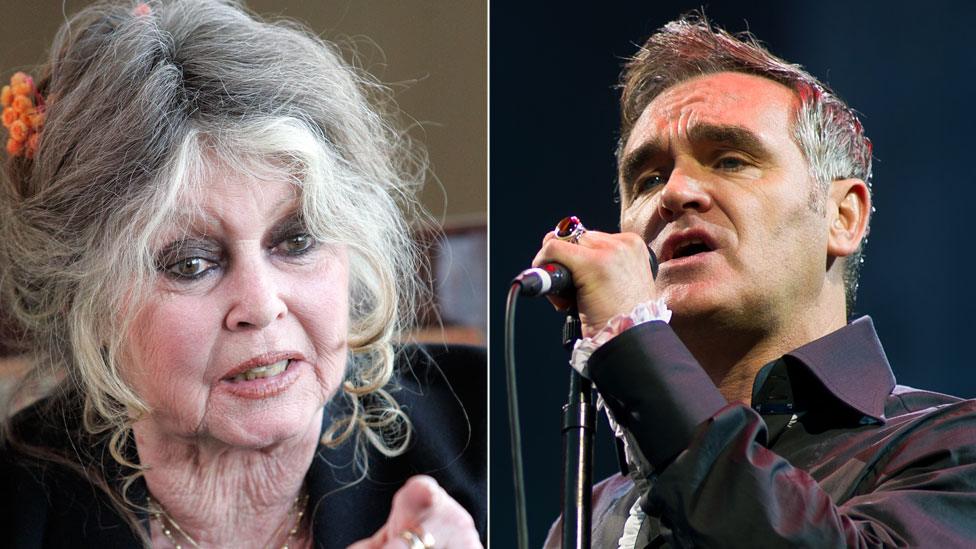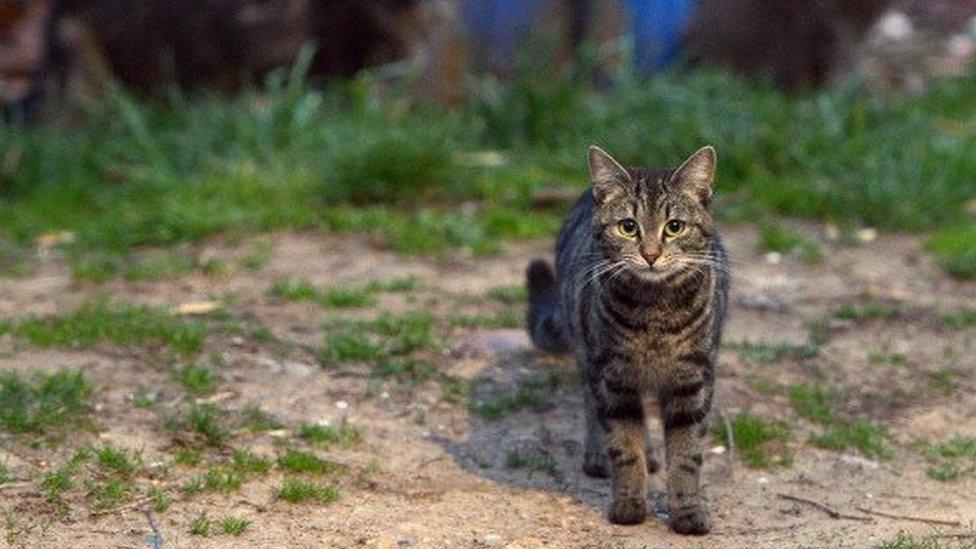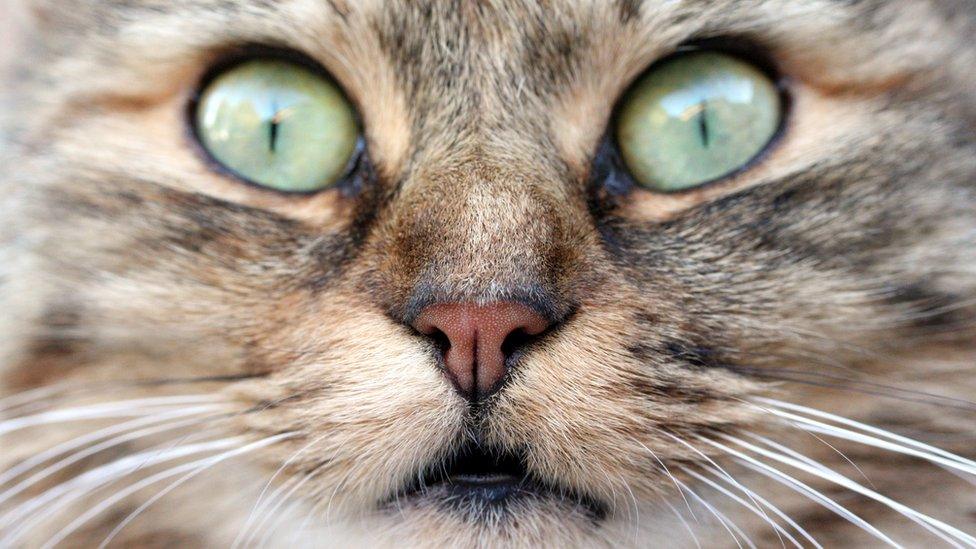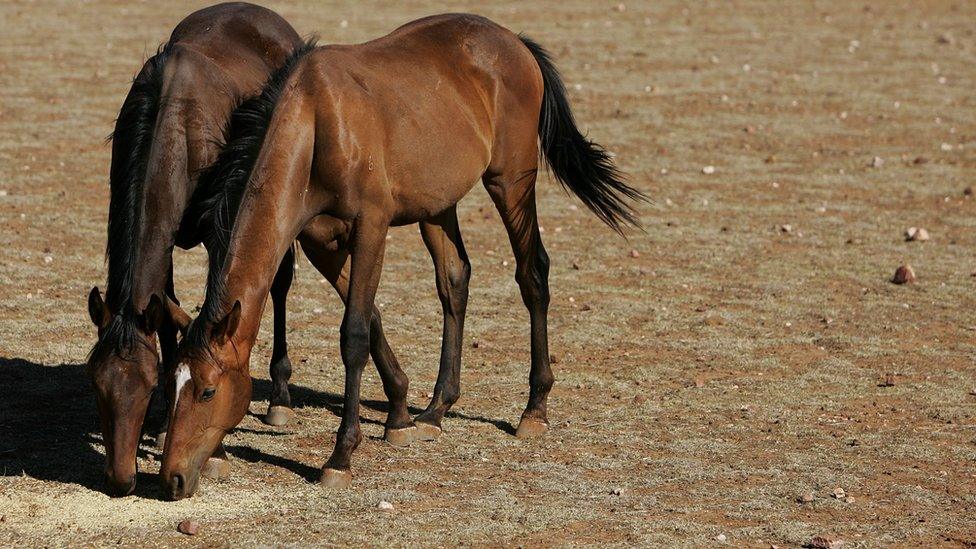Australia defends cat cull to Morrissey and Brigitte Bardot
- Published
- comments

Both Bardot and Morrissey have been high-profile critics of the feral cat cull
An Australian official has written an open letter to Morrissey and Brigitte Bardot to defend the decision to cull two million feral cats.
The British musician and French film star have both criticised the plan, but Threatened Species Commissioner Gregory Andrews said it was an essential move, external.
Morrissey has accused Australia of "taking idiocy just too far".
Mr Andrews said cats endangered more than 120 species and their cull would protect native wildlife.
"Our native species are simply not equipped to coexist with feral cats; they did not evolve alongside predators like the feral cat," he wrote in his open letter.
He said the plan, which was first announced in July, will see two million cats killed over the next five years, and has the support of major environmental organisations.

Feral cats are estimated to kill many other animals in Australia each year
Morrissey has angrily attacked the scheme, calling the Australian government "essentially a committee of sheep-farmers who have zero concerns about animal welfare or animal respect".
"The cats are, in fact, two million smaller versions of Cecil the lion," he said, referring to the famous big cat killed by a US dentist in Zimbabwe.
In July, Bardot wrote an open letter to Environment Minister Greg Hunt, calling the plan "scandalous".
"This animal genocide is inhumane and ridiculous," she said. There is no word yet if either of the two have replied to Mr Andrews' letter.

Australia's feral cat problem

Cats arrived in Australia at the same time as European settlers - feral cat colonies became established by the late 1850s.
There are now an estimated 20 million feral cats across the country.
They prey on small mammals, birds, reptiles, amphibians, fish and insects - each cat kills around five animals a day.
Feral cats have been a major contributor to the extinction of at least 27 species and threaten over 120 more.p
Among the species lost are those such as the desert bandicoot and large-eared hopping-mouse, both unique to Australia.
Source: Australian government

- Published8 October 2015
